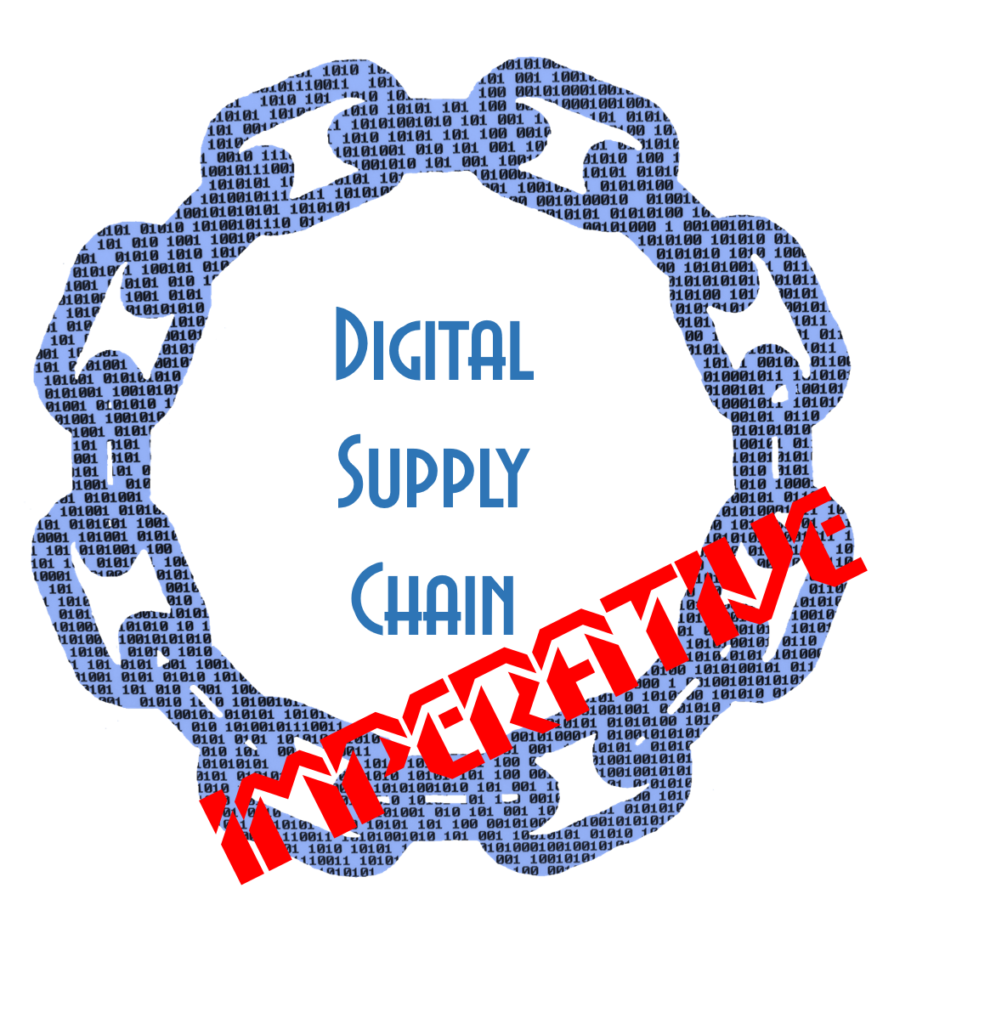Supply chains are making headlines for all the wrong reasons. Blocked canals, ransomware shutdowns, clogged ports, computer chip and other commodity shortages are just a few of the challenges making supply chains bad news for everyone. Journalist Arthur Cole (@acole602) notes, “Global economic activity is picking up now that pandemic-related restrictions are easing. But this return to normal has not been without hiccups, notably including supply chains emerging from virtual shutdowns.”[1] As supply chains brace for what comes next, Cole observes, “Few organizations are eager to revert to the manual-driven operational frameworks of the previous decade. The shift to advanced automation and artificial intelligence in the management layer was already underway before the pandemic hit, and there are signs this change is accelerating the drive to simplify, streamline, and enhance operations in order to meet the needs of an increasingly digital economy.”
Tech reporter Jack M. Germain asserts, “Artificial intelligence has made noticeable changes to technologies around the world. Perhaps AI’s most notable potential, however, is its role in the supply chain industry.”[2] Artificial intelligence (AI) is an umbrella term covering a number of technologies, most notably machine learning. As Eric Siegel (@predictanalytic), a former computer science professor at Columbia University, explains, “A.I. is a big fat lie. Artificial intelligence is a fraudulent hoax — or in the best cases it’s a hyped-up buzzword that confuses and deceives. The much better, precise term would instead usually be machine learning — which is genuinely powerful and everyone oughta be excited about it.”[3] Unfortunately, Siegel is fighting a losing battle and the term “artificial intelligence” is going to continue its ubiquitous use. Understanding that AI involves a number of technologies, including machine learning and cognitive computing, is important as professionals wrestle with how to use these technologies to improve supply chains. In this article, I provide a general overview of why experts insist AI solutions are necessary for improved supply chain operations. In Part 2, I will discuss specific ways AI can improve supply chain operations.
AI and the Future of Supply Chains
Many, if not most, supply chain pundits insist that supply chains must become more digital in order to be effective in the Digital Age. They argue that supply chains must be demand driven and, by that, they really mean they must be data driven. Jim Chappell (@JamesPChappell), Global Head of AI and Advanced Analytics at AVEVA, writes, “Digitalization is essential for industry in this current climate, both to increase margins and operational performance in good times and to adapt in the bad. AI has reached a key juncture where the real-world benefits are instantly recognizable.”[4] Germain explains, “AI has a twofold role in supply chains. The first is automating repetitive tasks and processes across supply chain functions. The second is realizing new forms of strategic decision making and collaboration.” He adds, “AI has tremendous potential to impact the global supply chain. It can do this by taking over time-consuming and error-prone manual work. This can involve AI more efficiently predicting demand, improving delivery times, reducing costs, and taking over customer support roles.” Those activities only begin to explain the ways artificial intelligence technologies can assist supply chain managers to achieve their goals. Cole notes, however, “Applying AI to the supply chain is not a simple matter of throwing it at various processes to see what sticks. A more strategic approach that focuses on the value of data as the key driver of productivity is needed.”
Also keep in mind that AI technologies are often used in combination with other emerging technologies in order to maximize benefits. Chappell explains, “AI application is supported by the increasing adoption of devices and sensors connected through the Internet of Things (IoT). Production machines, vehicles, or devices carried by human workers generate enormous amounts of data. AI enables the use of such data for highly value-adding tasks such as predictive maintenance or performance optimization at unprecedented levels of accuracy. Hence, the combination of IoT and AI has begun the next wave of performance improvements, especially in the industrial sector.” Andrew Meola (@AMeolaTheStreet), Director of Subscription Marketing for Business Insider Intelligence, adds, “The combination of mobile computing, analytics, and cloud services, all of which are fueled by the Internet of Things, is changing how delivery and fulfillment companies are conducting their operations.”[5] The analytics to which both he and Chappell refer are generally embedded in some sort of AI technology, like cognitive computing solutions, such as the Enterra Supply Chain Optimization System™.
Mike Hulbert, vice president of consumer business at Noodle.ai, wisely suggests supply chain professionals ensure their AI solutions can explain their findings. He writes, “Trust is critical in a high-stakes and maddeningly complicated supply chain breakdown. No AI will have the human intelligence that a planner has, but the AI will have far more rigorously interpreted context than the planner. AI platforms need to expose their reasoning to planners to verify the assumptions, and to give planners the confidence to act on those insights. Making large impactful decisions requires courage and assurance, not just big data and clever algorithms.”[6] To avoid this black box situation, Enterra Solutions®, leverages the Representational Learning Machine™ (RLM) created by Massive Dynamics™. The RLM can help determine what type of analysis is best-suited for the data involved in a high-dimensional environment (i.e., it ensures the right model is being used). The RLM also operates in a glass box fashion so clients know exactly why and how results are being generated. Patrick Hall, the principal scientist at bnh.ai, and Navdeep Gill, the lead data scientist at H2O.ai, assert, “Understanding and trusting models and their results is a hallmark of good science. Analysts, engineers, physicians, researchers, scientists, and humans in general have the need to understand and trust models and modeling results that affect our work and our lives.”[7]
Concluding Thoughts
If you are looking for instant solutions to nagging supply chain problems, in the short-term, you are going to be disappointed with artificial intelligence solutions. Cole explains, “It should be noted that AI is not like past technology developments that began working their magic as soon as they were deployed. AI must be trained, refined, and seasoned — just like any other employee. It’s a fast learner, to be sure, but it makes its share of mistakes. When it comes to the challenges of restarting crucial supply lines in the post-pandemic transition, AI will not provide an instant solution, but its true benefit to business operations will become clear in the long term.” Because there are so many types of AI technologies available to address supply chain challenges, Robert J. Bowman, managing editor of SupplyChainBrain, predicts, “As with any cutting-edge technology, acceptance of AI will be gradual.”[8] Most pundits agree, however, that AI will eventually find a home in every supply chain. In Part 2 of this article, I’ll provide specific supply chain areas where AI appears to have the greatest potential.
Footnotes
[1] Arthur Cole, “How AI can simplify, streamline, and enhance supply chain operations,” VentureBeat, 4 June 2021.
[2] Jack M. Germain, “AI’s Potential to Manage the Supply Chain,” Tech News World, 30 October 2020.
[3] Eric Siegel, “Why A.I. is a big fat lie,” Big Think, 23 January 2019.
[4] Jim Chappell, “Unlocking the Value of Supply Chain with AI-driven Processes,” Supply Chain Digital, 15 May 2021.
[5] Andrew Meola, “How AI and IoT devices will revolutionize supply chain logistics and management in 2021,” Business Insider, 22 February 2021.
[6] Mike Hulbert, “Five Ways to Leverage AI in Supply Chain Management,” SupplyChainBrain, 16 May 2021.
[7] Patrick Hall and Navdeep Gill, “Do You Trust and Understand Your Predictive Models?” insideBIGDATA, 3 February 2020.
[8] Robert J. Bowman, “How AI Is Tackling Waste in Factories and the Supply Chain,” SupplyChainBrain, 7 June 2021.





